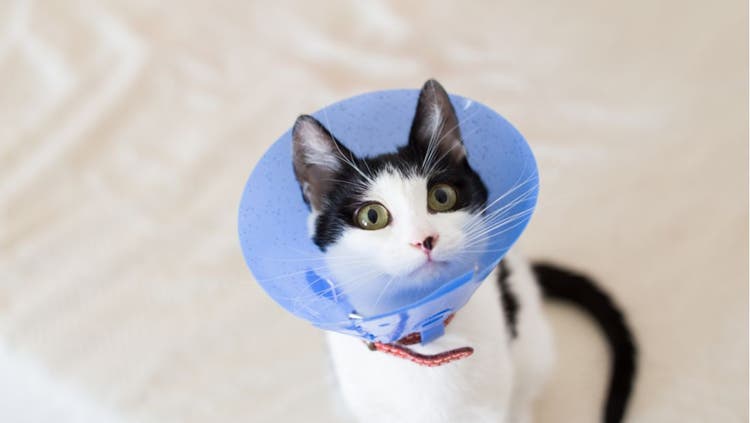
How to Prepare for a Cat Emergency
Being prepared and having a plan of action are the best measures to take to protect your pet. Here’s what you can do in case of a cat emergency and how you can prevent emergencies in the future.
Know Your Veterinary Clinic “Emergency” Policy
Every veterinary clinic is different. Some are available for emergency calls 24/7, while others are only available by appointment. Knowing your local veterinary hospital’s hours and capabilities are the most efficient way to be prepared for a cat emergency.
Below is an information template. You can fill it out with your emergency cat vet information and place it on your refrigerator for peace of mind.
Pet Emergency Contact Information
My Vet Hospital Name__________________________________
Phone Number__________________________________________
Emergency Hours_______________________________________
Closest Emergency Clinic Name ________________________
ER Phone Number_______________________________________
ER Clinic Address_____________________________________
Poison Control Phone Number (855) 764-7661
Poison Control Website https://www.petpoisonhelpline.com
What Is a Veterinary Cat Emergency?
When your cat has a medical issue, it’s best to know if it’s an emergency or worthy of a scheduled vet appointment? In most cases, an emergency can be defined as anything that causes you serious concern, since you know your pet best.
If you are worried about your cat, the first step to take is to call your veterinarian or local emergency cat hospital. Based on your concerns and the cat’s symptoms, they can assess the severity of the problem and provide specific directions.
If Your Vet’s Office Is Closed
The best number to call when you have a cat emergency is your veterinarian. If your vet is available and open, they may be able to see your pet immediately. If not, they may refer you to a local emergency clinic. If they’re also closed, most veterinary hospitals have their answering machine set to provide information about the closest operational clinic.
What If You Don’t Have a Vet for Your Cat?
It can be very scary when your cat has a medical problem or emergency and you don’t have a veterinarian. Try turning to Google to find an “Emergency Cat Hospital Near Me.” This should guide you to a veterinary hospital close to your location.
Three Most Common Veterinary Emergencies in Cats
The three most common veterinary emergencies in cats are vomiting, diarrhea, and inappetence. Below is some information about these three conditions and what you can do at home.
- Vomiting is the most common cat emergency. It can be caused by infections, eating spoiled food, chewing on plants, hairballs, eating indigestible objects, parasites, and diseases including diabetes, liver disease, and kidney disease.
- Not eating (inappetence) is the second most common reason cats are brought to the veterinarian. Lack of appetite can be caused by fever or infection, as well as diseases like liver disease, kidney disease, and diabetes.
- Trouble urinating, also known as dysuria, is another common cause for vet visits. Trouble urinating, straining to urinate, or urinating outside of the litter box can be caused by infections, bladder stones, or a urinary blockage.
How to Prevent Common Cat Emergencies
- Keep your cat indoors, if possible. This reduces the risk of cat fights, being hit by a car, getting into the trash, and lacerations.
- Prevent exposure to common toxins, such as rat poison and antifreeze.
- Prevent exposure to common household items, like gorilla glue, and cleaning chemicals, like bathroom cleaners, bleach, and other corrosives.
- Do not give your cat any over-the-counter medications, such as aspirin, Ibuprofen (Advil), or acetaminophen (Tylenol) without the approval of your veterinarian.
- Keep all nicotine out of reach, including cigarettes, cigars, tobacco, nicotine gum, vape chemicals, and nicotine patches.
- Keep your purse closed and out of reach of your cat. Purses can contain dangerous items, such as makeup, food, dental floss, or pennies that can become stuck in the gastrointestinal tract and cause life-threatening zinc toxicity.
- Keep your pet’s regular medications out of reach. An overdose of a pet’s regular medication can be dangerous.
- Be careful around the home with items like liquid potpourri, which can be very appealing, but severely harmful. Also, be conscious of sources of lead, such as paint chips.